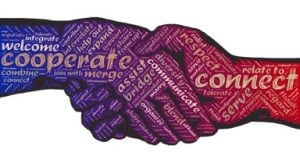“Soft skills”… does that term sound like an easy or less important skill to develop? Also the word “Soft” may sound a little weak, well these skills are certainly not weak, but without them you and your organisation’s effectiveness will certainly be weakened. Here we look at five key areas where soft skills can have a positive commercial impact.
Time after time research shows how fundamentally important and necessary they are in today’s workplace. In the LinkedIn report Global Talent Trends 92% of talent professionals reported that soft skills are equally or more important when hiring than hard skills and 89% said that when a hired employee doesn’t work out, it is because they lacked critical soft skills…
So how can these soft skills help you?
Teamwork
Effective communication at work creates a positive, trusting and healthy environment where people are accountable, can challenge freely and have their ideas not merely listened to, but actually implemented.
This leads to motivation, confidence, trust and purpose. All these hugely help to reduce turnover, confusion, duplication and ultimately a toxic workplace – interestingly, research has shown that Millennials and Generation Z employees are three times more likely to leave a toxic workplace than other workplace generations.
Better Leadership
Leaders with strong soft skills who can engage with all in an open manner and actively listen to their people will have staff following them willingly as they feel motivated and valued. Using emotional intelligence (the ability to understand, use, and manage your own emotions in positive ways to relieve stress, communicate effectively, empathise with others, overcome challenges and defuse conflict) also helps to motivate and empathise with people which leaves a lasting and positive mark that is rarely forgotten.
No longer can leaders just talk the talk – they have to walk it more than ever before. As behaviour breeds behaviour, they create the leaders of the future, but ones with integrity.
Open communication
Many businesses communicate well, but not all do it openly or with the differences of their people in mind. Those who adjust their communication style to meet others will make the person feel valued, respected and more importantly understood.
Those with great soft skills understand not only what is said but how it is said including all the non-verbal clues received face to face, virtually and in written communications. Knowing how to get along with people and display a positive attitude are fundamental for success.
Improved customer service
Excellent soft skills build trust with your customers, trust brings repeated business, efficiency and profitability, those who can actively listen and engage fully and effectively will no doubt understand exactly what their customer really wants and how the business can then meet those demands.
Adaptability and problem solving
The skills of problem solving and adapting your behaviour are a huge asset to any organisation, as change is the only constant, the ability to skillfully manage and communicate change will help others adapt more quickly, respond more effectively and thrive through it.
Finding solutions through critical thinking that help you make wise decisions, is yet another benefit of how soft skills are hugely valuable.
Conclusion
There you go! Some concrete reasons why soft skills can make the hard issues viable – and the good news is they can all be learnt.





